Another in a series of basketball stars who took to the diamond in Evansville.
After St. Louis University won the 1948 NIT at Madison Square Garden, Ralph Beard and the Adolph Rupp-led Kentucky Wildcats captured the NCAA Championship at the same venue. Later that summer Beard added an Olympic Gold Medal at the 1948 London Games. Two years later he was playing second base for the Evansville Braves.
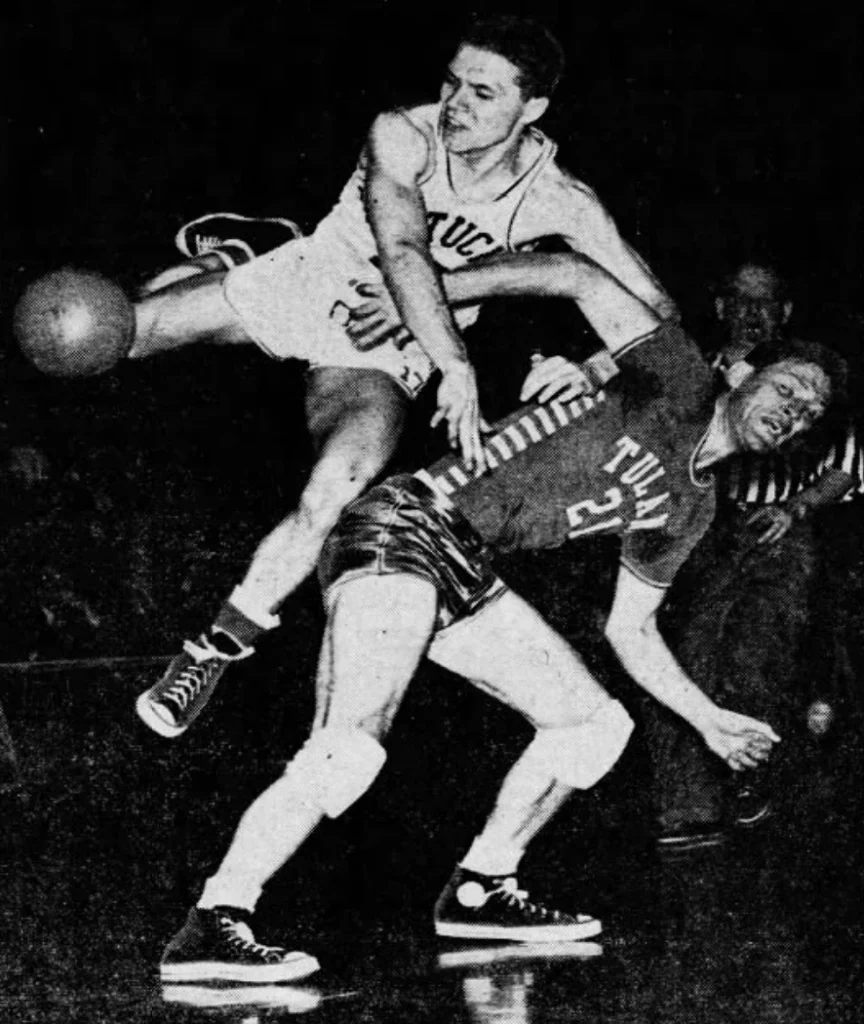
Beard was a player-owner of the NBA’s Indianapolis Olympians as a founding member of the NBA when he was added to the roster. With only 20 minor league baseball games under his belt at Class D Bluefield, West Virginia the previous season, Beard was a long shot to make the club. He played baseball at Louisville Male High School before attending U.K. New Evansville manager Ernie White penciled in as the team’s second baseman and expected him to report for the regular season when the NBA playoffs ended.
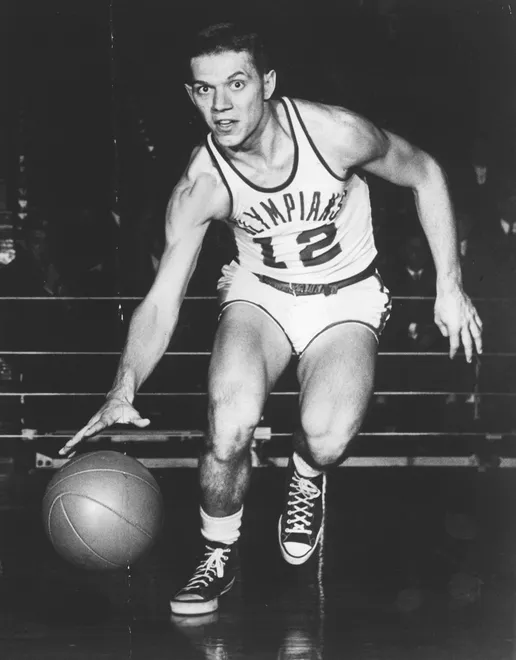
The Braves didn’t have to wait long for the diminutive Beard. The Olympians were knocked out of the NBA playoffs in the second round on April 1 by the Anderson Packers in front of a sellout Butler Fieldhouse crowd of 14,461. The Indianapolis Star reported more than 3,000 people were turned away at the gate for the third game of a three-game series. Anderson played its games at the largest high school gymnasium in the world at the time – The Wigwam. Indianapolis won its first playoff series in three games over the Sheboygan (WI) Red Skins before meeting Anderson. Beard scored 24 points in the series winning game against Sheboygan. His teammate at U.K. and co-owner of the Olympians, Alex Groza, went for 30 points.
Beard joined the Braves for the first exhibition game at Bosse Field on April 15 after the team returned to Evansville from Myrtle Beach training camp. Beard’s first appearance was an exhibition game against Evansville College at Bosse Field. Another former high school basketball star and E-Braves player, Frank Schwitz, was in left field for the Aces that day. It was clear Beard would stick with the club as its second baseman, edging out an African American, George Handy. Handy had a good Spring but was set to Class-B Bridgeport of the Colonial League to make room for Beard.
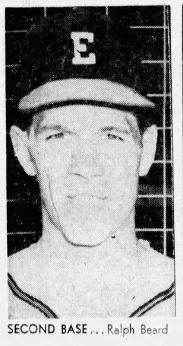
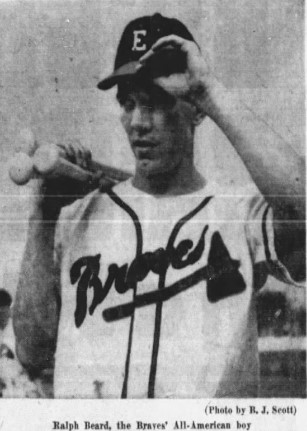
He converted to third base midway through the season. During the 140-game Three-I League schedule, he suffered injuries, the flu and was knocked unconscious from his own bat when a ball he fouled caused the timber to hit him in the head. Still, he appeared in 98 games for the Braves and tied for the team lead in triples with seven. The Braves finished a dismal year, finishing sixth in the eight-team league after a first place finish the previous year. A highlight in Beard’s year in Evansville may have been serving as best man for Don Hazelton, Braves first baseman, in late August. He had two hits in four trips to the plate in the team’s final game at Davenport on September 4. Those would be his final trips to the plate in organized baseball.
Both Beard and Groza completed the 1950-51 NBA season, after which Beard was offered a baseball contract with Denver of the Class-A Western League. He declined the offer to concentrate on basketball.
The sky was the limit for Beard until storm clouds arrived. While exiting a College Basketball All-Star game at Chicago Stadium on October 19, 1951, he and teammate Alex Groza and Ralph Beard, along with another ex-UK teammate, Dale Barnstable, were arrested and accused of accepting bribes to shave points in a 1949 NIT game at Madison Square Garden. Loyola of Chicago beat Kentucky by 11 in a game many felt that the Wildcats should have easily won.
After being apprehended, Ralph Beard felt a sense of relief. “It’s like a load’s been lifted. I couldn’t walk down the street without feeling someone was following me.”
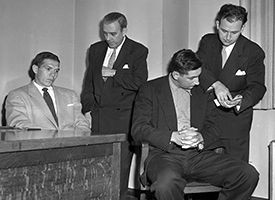
Beard never denied that he took the money but always denied he shaved points. The players were ordered by the courts to stay away from basketball for three years. National Basketball Association president Maurice Podoloff, in his all-powerful post, brought the hammer down. In a move that rivaled Judge Landis’s handling of baseball’s Chicago Black Sox players, Beard and Groza were banned from the NBA for life. Podoloff ordered them to sell their ownership in the Olympians, which dealt a death blow to the franchise. Ticket sales plummeted and the Olympians faltered without their star-studded duo and ultimately folded after the 1953 season.
Beard and Groza tried and failed to obtain permission to play in a rival league, the American Basketball League (ABL). After playing two exhibition games with Jersey City of the fledgling league, a banned them from the league. The ABL disbanded with the marquee duo of Beard and Groza. Beard’s requests to return to professional baseball were also denied. U.S. Olympic Association president Avery Brundage was more measured in his response. He said that the players could keep their 1948 Gold Medals, because none of their actions happened in the year of the games.
“I took it (the bribe) because I had no money. None,” explained Beard years later, still claiming no points were shaved.
Beard’s first marriage and life crumbled after the scandal. As time passed he slowly got himself together, remarried and raised a family. He worked hard to rebuild a once star-studded existence. His work ethic led to success in business selling pharmaceuticals. Beard picked up the game of golf and was good at it. The sport enabled him to exhibit his competitive nature on the golf course in his hometown of Louisville. His half-brother, Frank Beard, was a successful PGA tour professional. Frank won 11 times on the PGA tour and one time on the Senior Tour.
In 1985 Ralph Beard gained a measure of forgiveness and redemption when he was voted into the Kentucky Athletic Hall of Fame. One year later his half-brother Frank joined him in the Hall. Twenty years later Ralph and former mate Alex Groza were finally inducted into the University of Kentucky Hall of Fame to bring Beard’s redemption full circle. He died in November 2007 with more friends than could be counted.
Those who saw him play that one season in Evansville remember his grit and enthusiasm on the diamond. The season was his last.

Leave a Reply